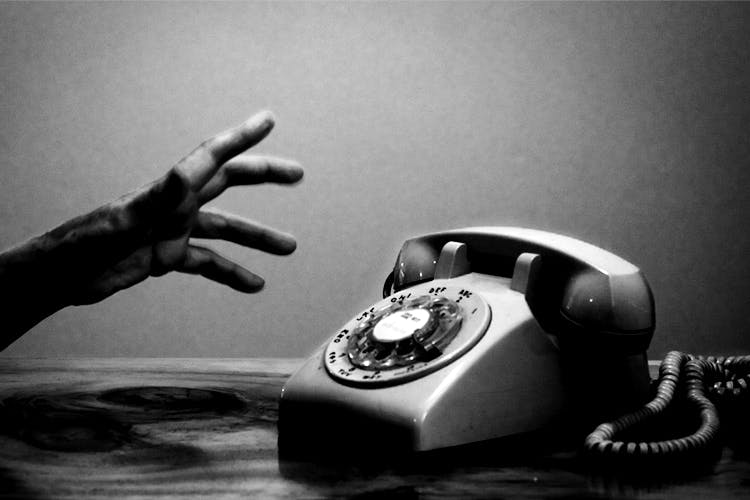Bhubaneswar: Unlike a lot of other states, Odisha continues to grapple with the absence of an emergency crisis helpline or other related resources for people who might be contemplating suicide.
For a person who cannot converse in Hindi or English, or open up to their near ones, one probably has nobody to talk to if he/she is having suicidal thoughts. Most of the National hotlines offer counselling in these two aforementioned languages. Not to mention the need of internet connectivity to find out about the other hotline numbers that exist in the country.
According to the last available data on the subject from the National Crime Records Bureau (NCRB), 4,087 people took their own lives in the state in 2015. Experts have said the reasons for high suicide rate are mental health issues, depression, inability to cope with stress, failure, feelings of dejection and substance abuse.
Unlike Odisha, most of the other states have at least one distress number to speak to in times of need. Some of them are set up by the authorities and offer help in local languages.The crisis intervention centres have professional psychiatrists, psychologists or trained counsellors who try to talk people out of the idea to commit suicide and provide emotional support. For example, states like Karnataka, Kerala and Madhya Pradesh have four, six and three hotline numbers respectively while Sikkim Police has a 24×7 suicide prevention helpline.
Agriculture Minister Arun Sahoo, in the State Assembly, had said that 38 farmers had committed suicide from 2016-17 to 2018-19. The government cited several reasons like fatigue, alcohol consumption and family quarrels as reasons for the suicides.
But there are scarce resources in the state that extend psychological support to distressed farmers as well.
Telangana, for instance, has a ‘Kisan Mitra’ helpline that provides counselling to distraught farmers and also dispatches trained volunteers to check up on them in severe cases. Maharashtra, which reports high incidents of farmer suicides, also has similar facilities in place.
India is not new to the epidemic. World Health Organisation’s (WHO) latest report says that India has the highest suicide rate in South-East Asia and has the third highest female suicide rate in the world (estimates of 2016). While President Ram Nath Kovind has called for a National Suicide Prevention Strategy, the country is yet to have one.
According to a study published in the medical journal ‘The Lancet Public Health’, estimated suicide rates between 1990 -2016 for women in Odisha have decreased but the rates for men have largely remained unchanged.
WHO says that suicides are preventable with timely, evidence-based and low-cost interventions. Mental health activists closer home are of the view that the state government is not doing enough to prevent suicide mortality in the state.
“We do need a crisis helpline in our state. Also there are hardly any mental health awareness campaigns undertaken by the government. It’s difficult to even find a psychologist on a regular basis in the city’s Capital Hospital.
Suicide is one of the biggest underlying problems in our society that we are ignoring. And our future generation will probably bear the brunt of it,” said Matrumayee, project coordinator of an NGO named Odisha Patita Uddhar Samiti.
Meanwhile, Additional Director of Health Services (Mental Health) Prameela Baral has said that SCB Mental Health Institute will come up with a suicide prevention helpline soon. Not waiting for government intervention, non- profit ‘People’s Forum’ is working on its own 24×7 crisis hotline that will be up soon.
“We will appoint counsellors in the district and taluk levels who can rush to the callers to check up on them too,” said Gobinda Pattanaik, Member Secretary of the organisation.
Experts stress that the need of the hour is to create a safe space for people to navigate mental health, overcome the stigma, reach out, talk and get the necessary help required to combat suicidal thoughts.
Matrumayee says that the government needs to strengthen its efforts. She bats for school-based intervention as an effective preventive measure. ‘State government should start sensitising teenagers about mental health in schools.
It should try to keep a professional counsellor in every public school and college with whom students can talk freely if they want to. Every district headquarter can form a committee and have a counselling helpline. Just like schools have emergency numbers for the police or ambulance, they can have a counselling helpline too. It will be very helpful for the students,” says the activist.
Bhubaneswar based psychiatrist Amrit Pattajoshi says that health workers in rural areas need to be trained so they can identify people with mental health issues and be in a position to intervene.
He is also of the view that out of hundred people who commit suicide, almost eighty of them can be saved from taking the fatal step. “If you think you are in your darkest moment, please reach out to somebody. We are always there. If there is any emergency, if you, as a family member see the signs, please reach out. You always have to try. There’s always hope. Just allow these difficult moments or phases to pass,” says the doctor.
